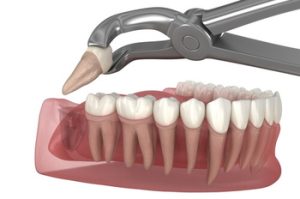Wisdom teeth removal is something many people face at some point, often accompanied by questions about cost, timing, and what to expect. While the idea of oral surgery can feel overwhelming, having a clear understanding of the process can make all the difference. With the right information, you can feel more confident in your choices and better prepared for each step. From early symptoms to recovery and associated expenses, this guide will walk you through everything you need to know, like wisdom teeth removal cost.
What Makes Wisdom Teeth a Problem Worth Removing?
In many cases, wisdom teeth cause complications that outweigh any potential benefit of keeping them. Their arrival can cause discomfort, shift nearby teeth, or increase your risk of infection. Let’s explore the key reasons for removing them.
Lack of Space in the Dental Arch

Impacted Wisdom Teeth Cause Ongoing Issues
An impacted wisdom tooth is one that has failed to fully erupt through the gum tissue. These teeth may be tilted, trapped beneath the surface, or partially visible. Wisdom teeth that don’t emerge properly often become a hidden source of bacteria, which can lead to localised inflammation. Over time, this may cause discomfort, tissue irritation, and a higher risk of oral infection. In more severe cases, they can even affect the roots of other teeth or lead to bone loss.
Prevention of Tooth Decay and Gum Disease
Because of their position at the back of the mouth, wisdom teeth are notoriously hard to clean. This makes them more vulnerable to plaque build-up, which can cause tooth damage and gum disease over time. An infected wisdom tooth can also cause inflammation in the gums or trigger severe pain when chewing. Taking out wisdom teeth at an earlier stage lowers the risk of future dental issues and helps protect nearby teeth from potential harm. In some cases, removing wisdom teeth helps preserve overall oral health.
Protecting the Health of Other Teeth
Wisdom teeth can push against adjacent teeth, creating pressure that weakens enamel and causes discomfort. This can lead to small gaps, which trap food and make brushing more difficult. In time, this may affect the health of nearby teeth and increase the chance of needing future dental treatments. Removing wisdom teeth early helps maintain balance in the bite and supports the long-term strength of surrounding teeth. It’s a preventive measure with lasting benefits.
What Is the Wisdom Teeth Removal Cost?
A basic wisdom tooth extraction in Australia usually costs at least $225 per tooth. When the tooth is impacted or needs surgical attention, the fee can start from $350 and may vary further based on your situation. To understand the full scope of your treatment and associated expenses, it’s recommended to request a tailored quote from your dental provider.
What Factors Affect the Cost of Wisdom Teeth Removal?
Several factors contribute to how much you’ll pay for this procedure. Here’s a closer look at what determines the wisdom tooth removal costs and what might influence your final bill.
 Number of Wisdom Teeth Being Removed
Number of Wisdom Teeth Being Removed
The cost of wisdom tooth removal often increases with the number of teeth involved. A single wisdom tooth extraction is usually more affordable than extracting multiple teeth in one session. If you need all four wisdom teeth removed, the procedure becomes more complex and time-consuming. In such cases, a surgical extraction may be recommended, which can further affect the overall price. Discussing your needs during the initial consultation will give you an accurate estimate.
Complexity of the Procedure
A straightforward tooth removal is quicker and typically less expensive than a surgical approach. Impacted teeth that are trapped below the gum line often require wisdom tooth removal surgery, which involves more preparation and recovery time. Factors like the tooth’s position, angle, and proximity to nerves can make a big difference in cost. A general dentist can usually handle straightforward wisdom tooth extractions, while more involved cases may require additional techniques or planning. The approach chosen will directly influence your removal cost.
Anaesthesia and Sedation Options
Another factor that can change the teeth removal cost is the type of anaesthesia used. A local anaesthetic is typically included in standard wisdom teeth removals, but some patients may prefer sleep dentistry or general anaesthesia for comfort. These options are generally offered for major dental procedures and will increase your out-of-pocket expenses. Your dental professional will discuss what’s most appropriate based on your health history, level of anxiety, and the removal surgery itself.
Insurance Coverage and Rebates
Your health insurance policy plays a key role in determining how much of the cost of wisdom teeth you’ll need to cover. Some private health insurance plans offer partial coverage for wisdom teeth extractions, particularly if classified under major dental procedures. However, limitations, waiting periods, or exclusions may apply. Confirming all treatment details in advance helps prevent any unexpected out-of-pocket expense during your dental visit. Always check what portion applies to your specific dental services.
The Dental Practice You Choose
The wisdom teeth removal cost may also vary depending on where you have the treatment. Some dental clinics in metropolitan areas may charge more due to overheads, while regional practices might offer lower fees. Prices also differ based on the experience of the provider, the tools used, and the available dental care options. It’s wise to balance affordability with quality to ensure you receive safe, professional treatment. You’re not just paying for the tooth extraction, but for the support and aftercare too.
What Occurs During the Wisdom Teeth Removal Procedure?
Administering Anaesthesia
Before the wisdom teeth extraction procedure begins, the dental team ensures you are comfortable by administering a local anaesthetic. This numbs the area around the impacted wisdom tooth, making the process stress-free. In some cases, patients may choose sleep dentistry for a more relaxed experience. Your comfort and safety are monitored throughout the procedure. The goal is to minimise discomfort and keep you informed at every stage.
Accessing the Tooth and Making Incisions
If the tooth is impacted, a small incision is made in the gum tissue to expose it. Any bone covering the impacted wisdom teeth is gently removed using precision tools. This helps reduce trauma to the area and allows for a smoother extraction. The dentist may divide the tooth into smaller pieces to ease removal. Care is taken to protect nearby teeth and nerves during the process.
Tooth Extraction and Debris Removal
Once the tooth is visible and accessible, it is loosened from the socket and gently extracted. Any remaining fragments or debris are thoroughly cleared from the area. The infected wisdom tooth and surrounding tissue are cleaned to reduce the risk of gum disease or tooth decay. Removing wisdom teeth this way ensures that no pieces are left behind. The dentist then prepares the site for closure.
Suturing the Area
The site may be closed using dissolvable stitches to help the gum tissue heal properly. Sutures also help reduce bleeding and prevent food from entering the socket during early recovery. Some patients may not require sutures if the wisdom teeth extracted were not impacted. You’ll be given instructions on how to care for the area and avoid disrupting the clot. Proper aftercare supports quicker healing.
 Immediate Aftercare Instructions
Immediate Aftercare Instructions
After the procedure, you’ll be encouraged to relax and avoid heavy activity so your body can begin the healing process smoothly. It’s advisable to eat soft foods like mashed vegetables or yoghurt for a few days. You’ll also be advised to avoid smoking, using straws, or rinsing vigorously. Pain relief medication may be provided to manage any jaw pain or severe pain during the first few days. Following your dentist’s advice closely reduces the chance of infection.
Monitoring and Follow-Up
To monitor your progress, a review appointment might be arranged. If intense pain, visible swelling, or any unusual symptoms develop, contact your dental clinic without delay for assessment. Healing usually progresses well within a week, depending on how many wisdom teeth were removed. Any concerns about oral health problems or discomfort should be addressed without delay. Keeping up with regular dental checkups helps ensure a smooth recovery.
Call Us Today to Plan With Confidence
Understanding the wisdom teeth removal cost and what influences it empowers you to plan confidently for your dental care. From the initial consultation to the final stages of healing, knowing what to expect reduces anxiety and helps you manage costs wisely. Whether you’re removing one wisdom tooth or undergoing full wisdom tooth removal surgery, each step should be handled with care and professionalism. If you’re experiencing symptoms, don’t delay seeking help. To discuss your options, receive an accurate estimate, or book your consultation, please call us!
Call D’vine Smiles today to schedule your appointment:
- Greensborough: 03 4828 7427
- South Yarra: 03 4828 7428
Note: Any surgical or invasive procedure carries risks. Before proceeding, you should seek a second opinion from an appropriately qualified health practitioner.
References
https://www.ncbi.nlm.nih.gov/books/NBK279590/
https://www.healthdirect.gov.au/surgery/removing-wisdom-teeth

 Number of Wisdom Teeth Being Removed
Number of Wisdom Teeth Being Removed Immediate Aftercare Instructions
Immediate Aftercare Instructions